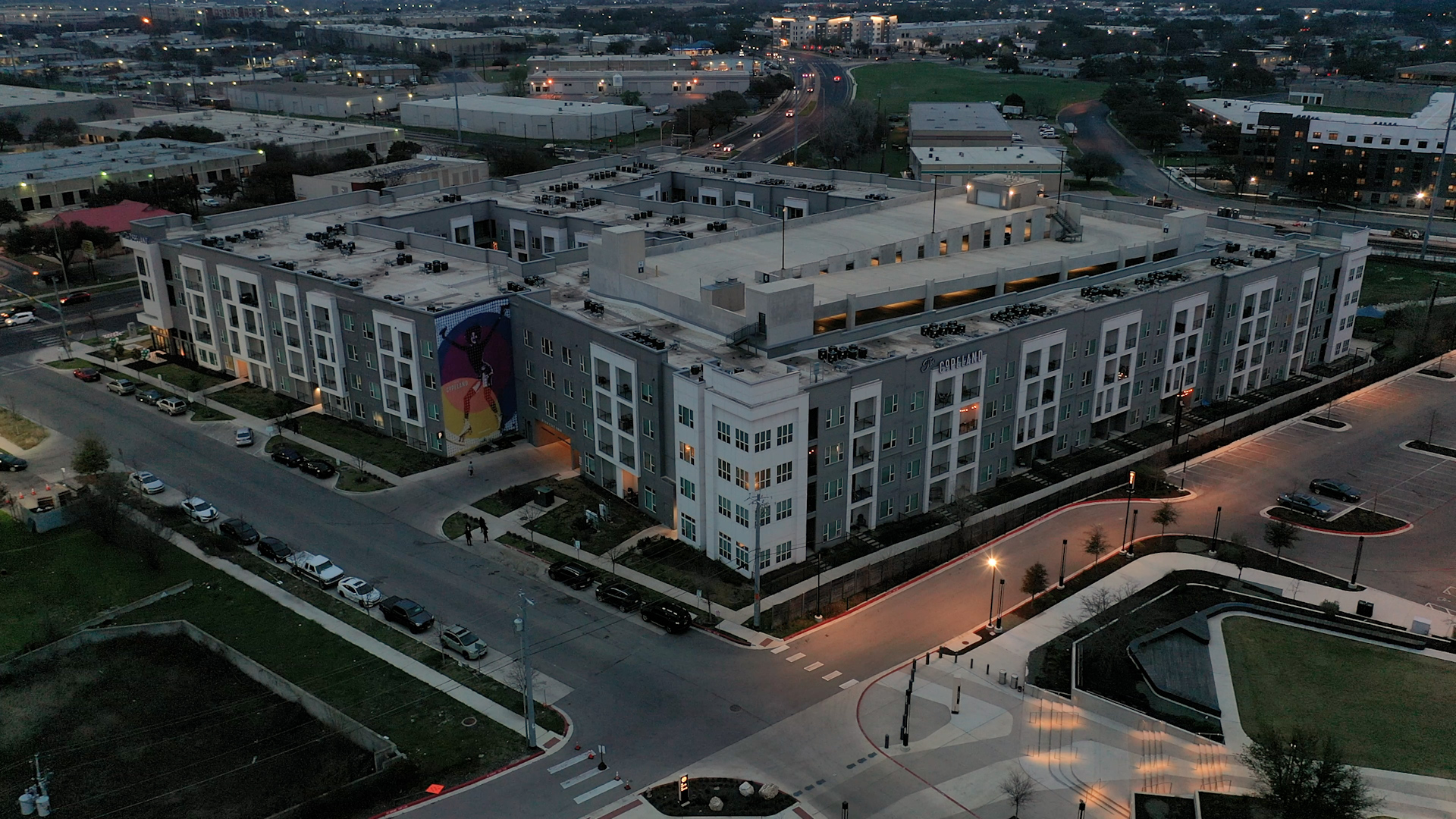
Adjusted density bonus program pushes housing, affordability on commercial properties
This article was originally published by the Austin Monitor. To see the original post, click here.
Following a December court ruling that invalidated three changes to the city’s Land Development Code, City Council has approved an ordinance change that promotes housing density by using many of the components of the now-obsolete Vertical Mixed Use 2 ordinance. The pair of changes were approved, with agenda Item 70 passing unanimously and Item 73 passing 9-1, with Council Member Alison Alter voting against and Council Member Mackenzie Kelly abstaining.
The DB90 program, so named because it features a density bonus structure that allows commercial properties converted to housing to build up to 90 feet in height, is intended to bake different levels of affordable housing into new residential units. The Density Bonus Combining District differs from VMU2 because it will also apply to properties located outside of existing and future core transit corridors.
Projects seeking to participate in the program will need to be reviewed through the city’s zoning process, including approvals by Planning Commission and City Council, in a nod to court defeats that found the city didn’t give proper notification to neighbors of potentially affected parcels.
Rental project developers operating under DB90 must set aside 10 percent of their units for affordability at a level of 50 percent of the area median family income, or $58,400 for a family of four. They can also set aside 12 percent of the units at 60 percent MFI, or $75,900 for a family of four.
For ownership units, 12 percent of the homes must be priced for affordability at 80 percent MFI, or $93,450 for a family of four.
Mandy DeMayo, interim director of the Housing Department, said staff analysis found the DB90 program would have a positive impact on housing costs via land use and zoning, a neutral impact on development costs and a positive impact on subsidized affordable housing.
Members of community groups representing East Austin, where gentrification has been a concern for more than a decade, said the program is misguided and will likely lead to some community fixtures being replaced by mostly market rate developments including units without the proper levels of deep affordability.
“Due to the disproportionately harmful impacts of this kind of development in East, North, and South Austin areas with mixed and low-income neighborhoods, this density bonus would be applied to low-intensity zoning categories that we find all over East, North, Central, Northeast South, and Southeast Austin, which is not a coincidence given the historic discriminatory zoning patterns on the east side,” said Monica Guzmán, policy director for Go Austin/Vamos Austin.
“The use of a density bonus on these areas without adequate affordability and anti-displacement components represents a continued exploitation and harm to the people in these neighborhoods who are negatively impacted by gentrification,” Guzmán said.
Council Member Chito Vela said the city needs to continue to enact as many policies as possible to create housing in all areas, with the large number of homes and apartment units delivered in the past year-plus showing an impact on local housing prices.
“Austin in 2023 built more apartments than any other city in the United States, and we are seeing rents dropping in Austin because of that. That’s not a coincidence. We need more housing of all types, we need better public transportation so people can get around without a vehicle and we need more market-rate units. We need more subsidized units and we need more permanently supportive housing,” he said. “The strategy is clear. The results are clear. We’ve got to continue to build more housing. I’m very proud of this Council for doing that and I fully intend to continue doing that.”
Community journalism doesn’t happen without community support.
Got story ideas, advice on how we can improve our reporting or just want to know more about what we do? Reach out to us at news@klru.org.
And if you value this type of reporting, then please consider making a donation to Austin PBS. Your gift makes the quality journalism done by the Decibel team possible. Thank you for your contribution.
More in Politics:
See all Politics posts





Contact Us
Email us at news@klru.org